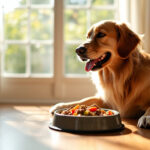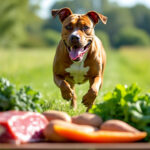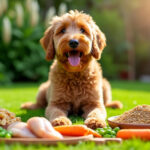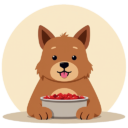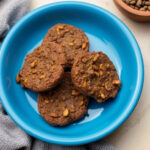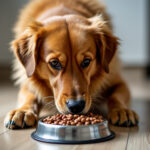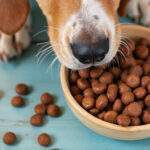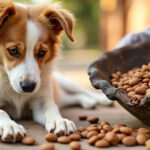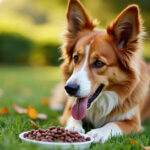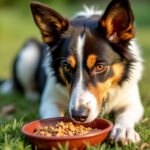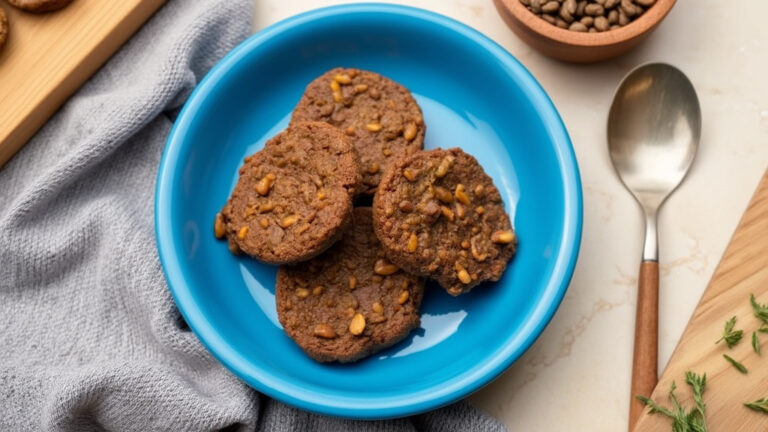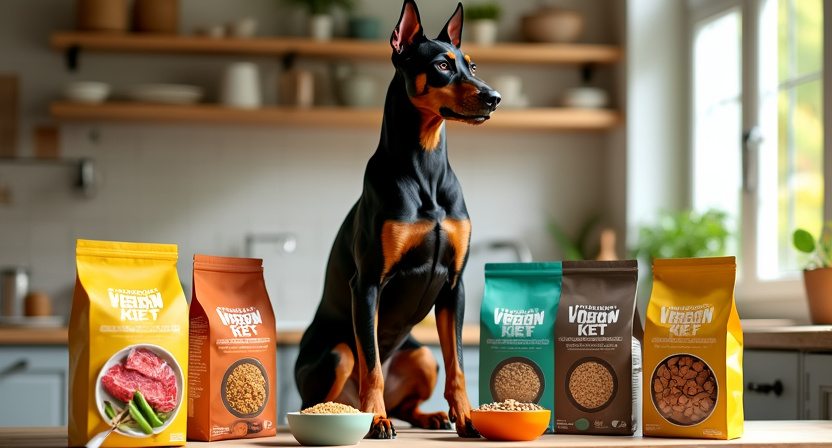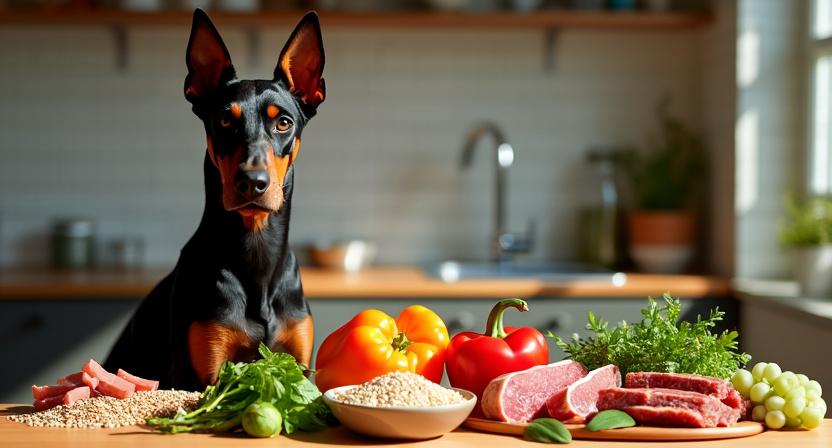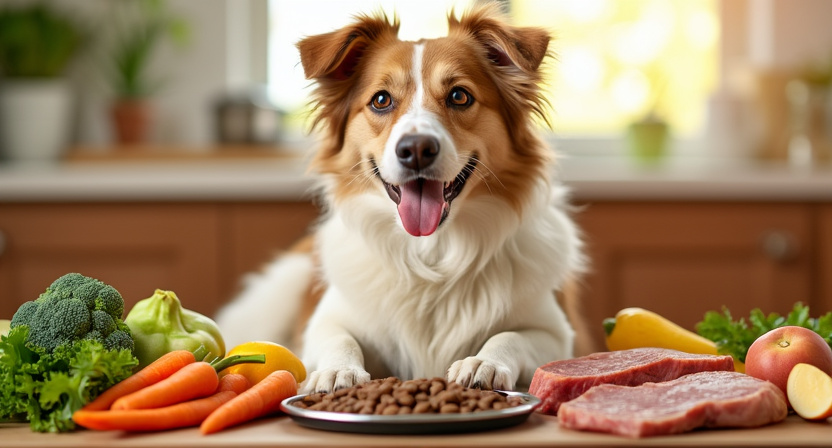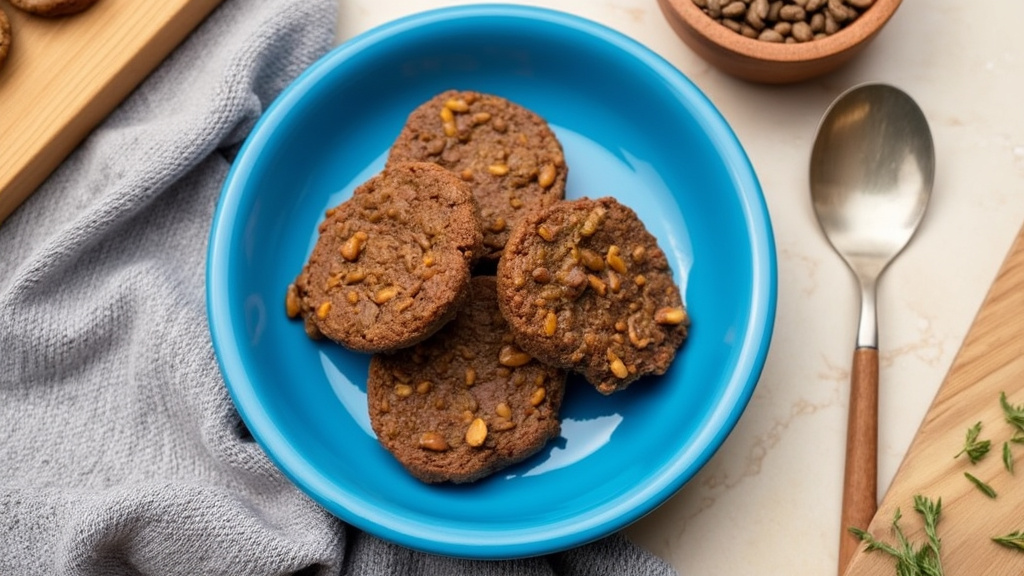Dobermans thrive on a balanced diet packed with top-notch proteins. I recommend a protein percentage of 35-36% to keep their muscles strong and energy levels high. It’s crucial to choose foods with easy-to-digest ingredients, enough fiber, and minimal processed components. This approach helps prevent tummy troubles and boosts overall health in these athletic pups.
Table of Contents
ToggleKey Takeaways:
- Premium protein sources such as wild-caught fish, chicken, duck, and beef are vital for Dobermans
- Dividing meals into several feedings throughout the day can lower the risk of bloat
- Incorporating foods with glucosamine and chondroitin supports joint health and may reduce hip dysplasia risks
- Fresh and raw food options can benefit Dobermans with sensitive stomachs or allergies
- Introduce new foods slowly over 7-10 days to avoid digestive issues
Understanding Doberman Nutritional Needs
Essential Nutrients for Optimal Health
Dobermans thrive on a diet rich in high-quality proteins, which are crucial for maintaining their impressive muscle mass and energy levels. I recommend looking for dog foods with a protein percentage of 35-36% to meet their needs. The best protein sources for these athletic dogs include wild-caught fish, chicken, duck, and beef.
Easily digestible ingredients play a key role in preventing digestive issues in Dobermans. Here’s what to look for in their food:
- High-quality, identifiable protein sources
- Nutrient-dense whole foods
- Adequate fiber content
- Limited processed ingredients
I advise steering clear of dog foods containing highly processed ingredients, meat meal, or unidentifiable meats. These can be harder for your Doberman to digest and may not provide the same nutritional benefits as whole food ingredients.
Fibers are another important component of a Doberman’s diet, supporting digestive health and maintaining a healthy weight. Opt for foods that include natural fiber sources like sweet potatoes, pumpkin, or brown rice.
By focusing on these nutritional elements, you’ll ensure your Doberman gets the balanced diet they need to stay healthy, active, and happy.
Health Considerations and Preventive Measures
Addressing Bloat in Dobermans
Dobermans are prone to bloat, a serious condition that can be life-threatening. To reduce the risk, I recommend splitting meals into multiple feedings throughout the day. It’s crucial to avoid foods that list soybean meal, oils, or fats within the first four ingredients. These components can increase the likelihood of bloat. Using slow feeder bowls can also help by preventing rapid eating, which is often a contributing factor to this condition.
Supporting Joint Health
Hip dysplasia is another health concern for Dobermans. To support joint health, look for dog foods that contain glucosamine and chondroitin. These supplements can help maintain healthy joints and potentially reduce the risk of hip dysplasia. Here are some additional tips for promoting overall health in Dobermans:
- Choose foods with high-quality protein sources
- Ensure the food meets AAFCO standards for complete nutrition
- Consider age-specific formulas as your Doberman grows
- Monitor your dog’s weight and adjust portions accordingly
By focusing on these health considerations and taking preventive measures, you can help ensure your Doberman stays healthy and active for years to come.
Top Recommended Dog Foods for Dobermans
High-Protein Options
I’ve found several top-notch dog foods perfect for Dobermans’ nutritional needs. The Honest Kitchen offers a range of options, including their dehydrated limited ingredient fish and whole grain chicken clusters. These provide excellent protein content and are easy to digest. Blue Buffalo Wilderness Adult Large Breed Chicken is another great choice, boasting an impressive 35.6% protein content. For those looking for even higher protein, Ollie’s Turkey Dish With Blueberries edges slightly ahead at 35.7%.
Fresh and Raw Alternatives
For a fresher approach, The Farmer’s Dog delivers slow-cooked, human-grade meals right to your door. If you’re considering a raw diet, We Feed Raw offers tailored options specifically for Dobermans, ensuring they get the right balance of nutrients. These fresh and raw options can be particularly beneficial for Dobermans with sensitive stomachs or allergies.
Fresh and Specialized Options
Gently Cooked Meals
I’ve found some excellent fresh food options for Dobermans that offer balanced nutrition. Nom Nom provides pre-portioned meals that are gently cooked to preserve nutrients. These meals are customized to your dog’s specific needs, ensuring they get the right balance of proteins, fats, and carbohydrates.
Innovative Dry Food Alternatives
For those looking for a dry food option with the benefits of fresh ingredients, Spot & Tango’s UnKibble is worth considering. This food is gently dried, maintaining the nutritional value of whole ingredients while offering the convenience of kibble. It’s a great middle ground between traditional dry food and fresh meals.
PawFoods offers another fresh meal option, focusing on organic ingredients. Their nutritionally balanced meals cater to Dobermans’ high-energy needs. Here are some key benefits of these specialized options:
- Custom-portioned meals to maintain ideal weight
- Higher moisture content for better hydration
- Minimal processing to retain natural nutrients
- Easily digestible ingredients for optimal nutrient absorption
These fresh and specialized options can significantly improve your Doberman’s diet, potentially leading to better overall health and vitality.
Feeding Guidelines and Transition
Meal Frequency and Portions
I recommend feeding Dobermans multiple times a day to reduce the risk of bloat. Split their daily food intake into two or three smaller meals. Adjust portions based on your dog’s weight and activity level. For example:
- An adult Doberman weighing 70-90 pounds typically needs 3-4 cups of dry food daily
- Highly active dogs may require up to 5 cups per day
- Seniors or less active dogs might need only 2-3 cups
When switching to a new food, transition gradually over 7-10 days. Mix increasing amounts of the new food with decreasing amounts of the old food to prevent digestive issues. Always consult your vet for personalized feeding advice tailored to your Doberman’s specific needs.
Sources:
The Honest Kitchen
Blue Buffalo
Ollie
The Farmer’s Dog
We Feed Raw
Nom Nom
Spot & Tango
PawFoods
Frequently Asked Questions
What protein percentage should I look for in dog food for my Doberman?
Look for dog foods with a protein percentage of 35-36% to meet your Doberman’s nutritional needs.
What are the best protein sources for Dobermans?
The best protein sources for Dobermans include wild-caught fish, chicken, duck, and beef.
How can I reduce the risk of bloat in my Doberman?
To reduce the risk of bloat, split meals into multiple feedings throughout the day and use slow feeder bowls to prevent rapid eating.
What ingredients should I avoid in dog food for Dobermans?
Avoid dog foods that list soybean meal, oils, or fats within the first four ingredients, as these can increase the likelihood of bloat.
How can I support my Doberman’s joint health?
Look for dog foods that contain glucosamine and chondroitin, which can help maintain healthy joints and potentially reduce the risk of hip dysplasia.
What are some recommended dog food brands for Dobermans?
Some recommended brands include The Honest Kitchen, Blue Buffalo Wilderness, Ollie, The Farmer’s Dog, and We Feed Raw.
How often should I feed my Doberman?
Feed your Doberman multiple times a day, splitting their daily food intake into two or three smaller meals to reduce the risk of bloat.
How much food should I give my adult Doberman?
An adult Doberman weighing 70-90 pounds typically needs 3-4 cups of dry food daily, but this can vary based on activity level and individual needs.
How should I transition my Doberman to a new food?
Transition gradually over 7-10 days by mixing increasing amounts of the new food with decreasing amounts of the old food to prevent digestive issues.
